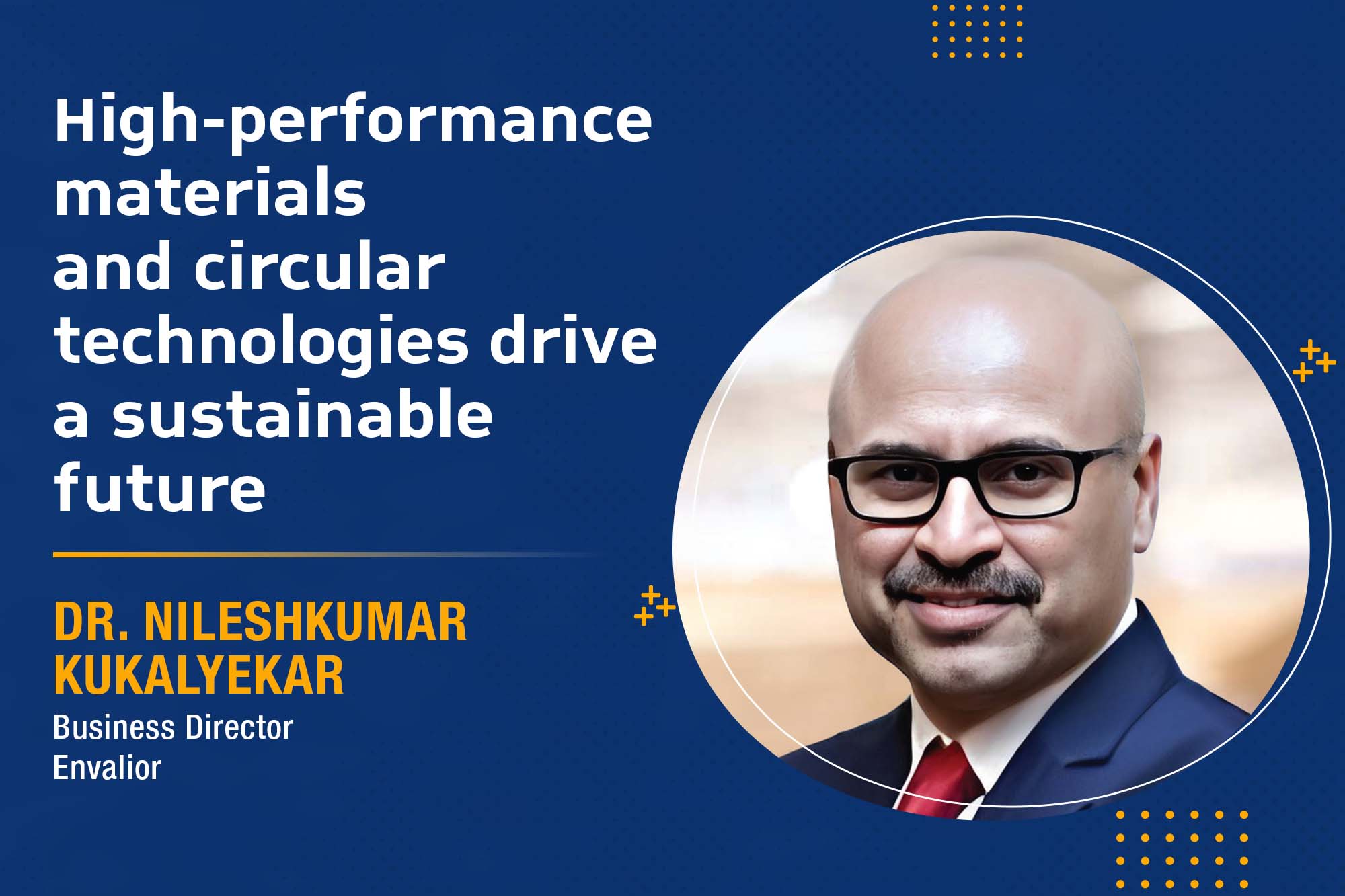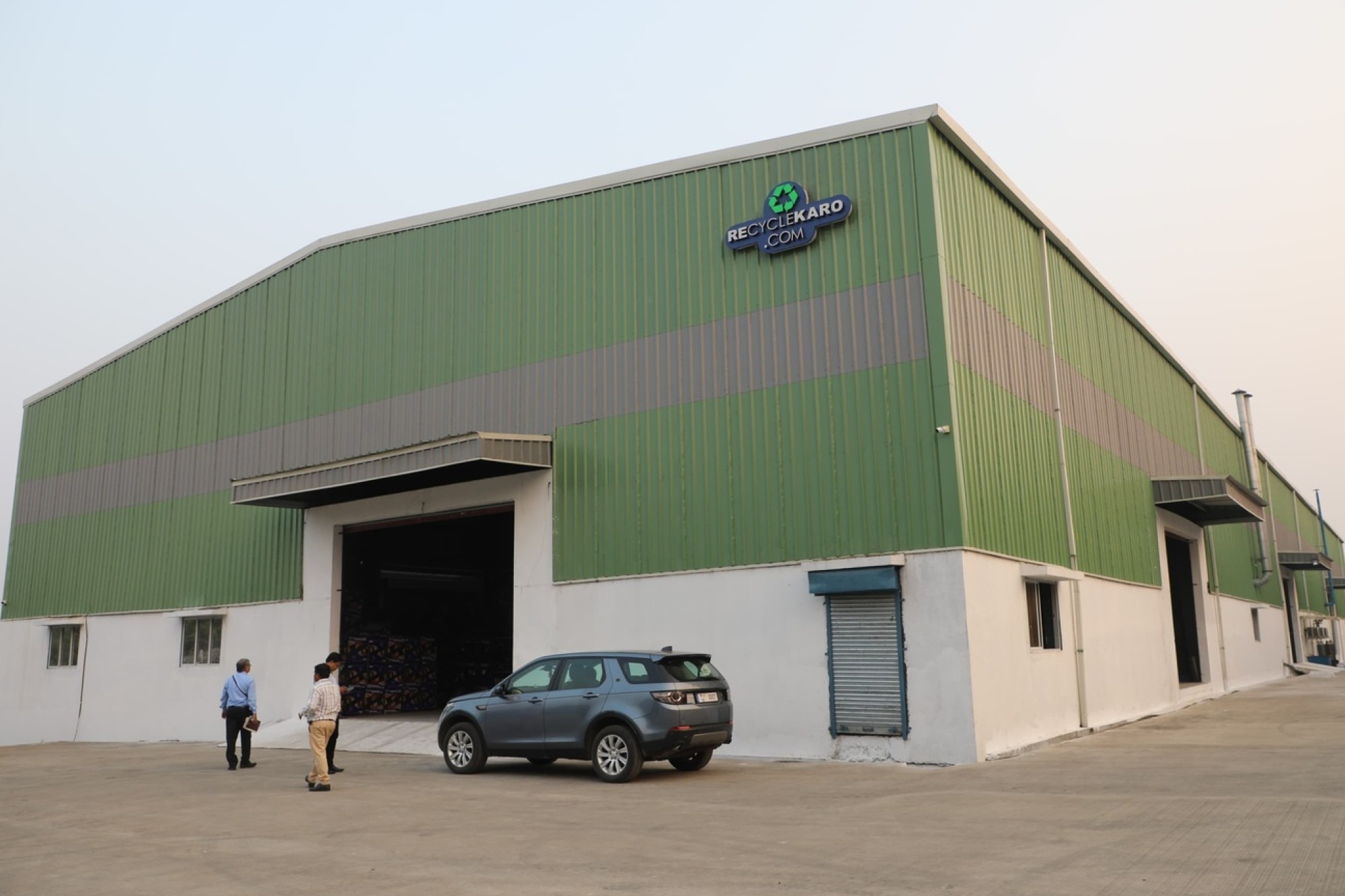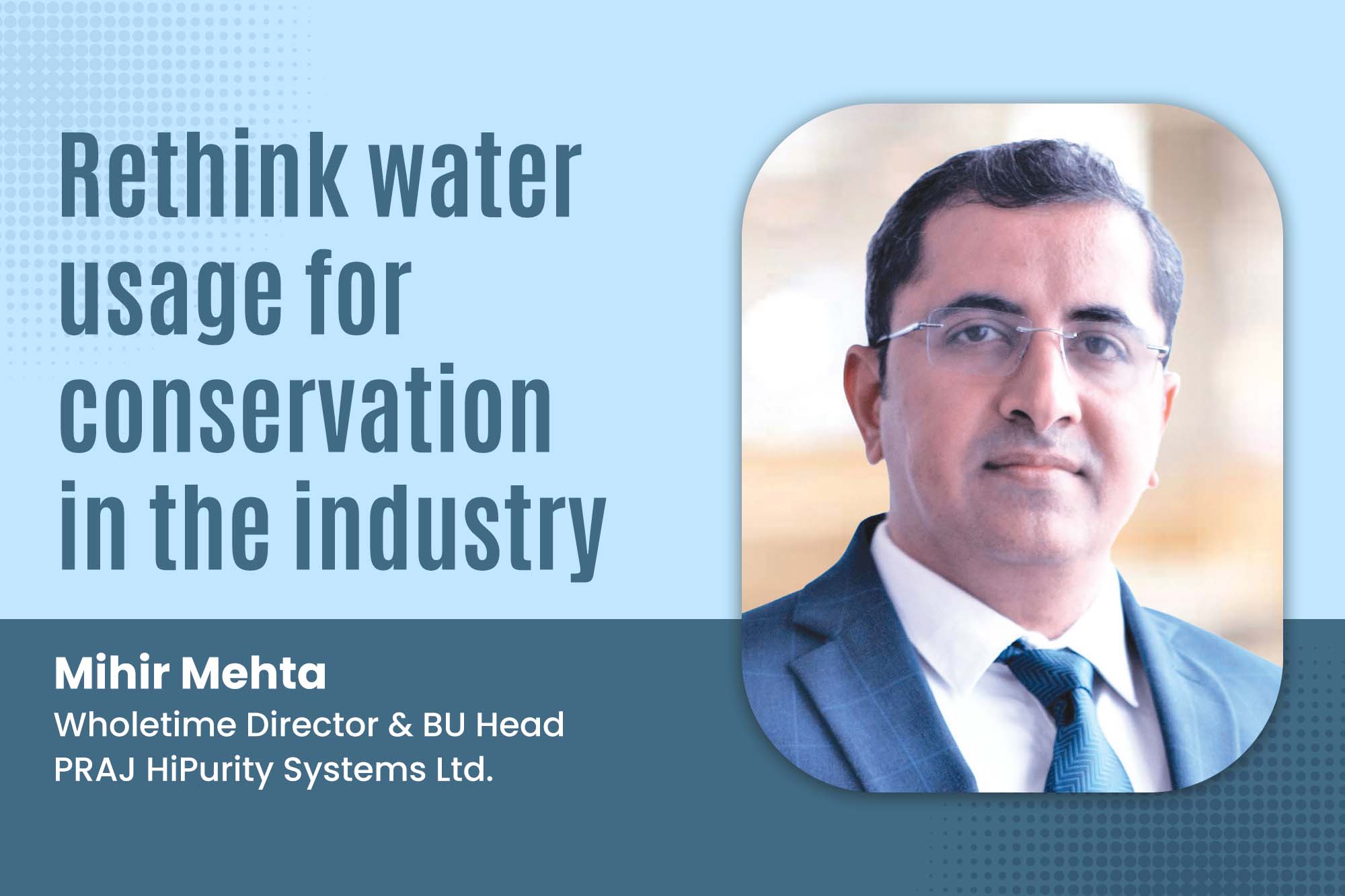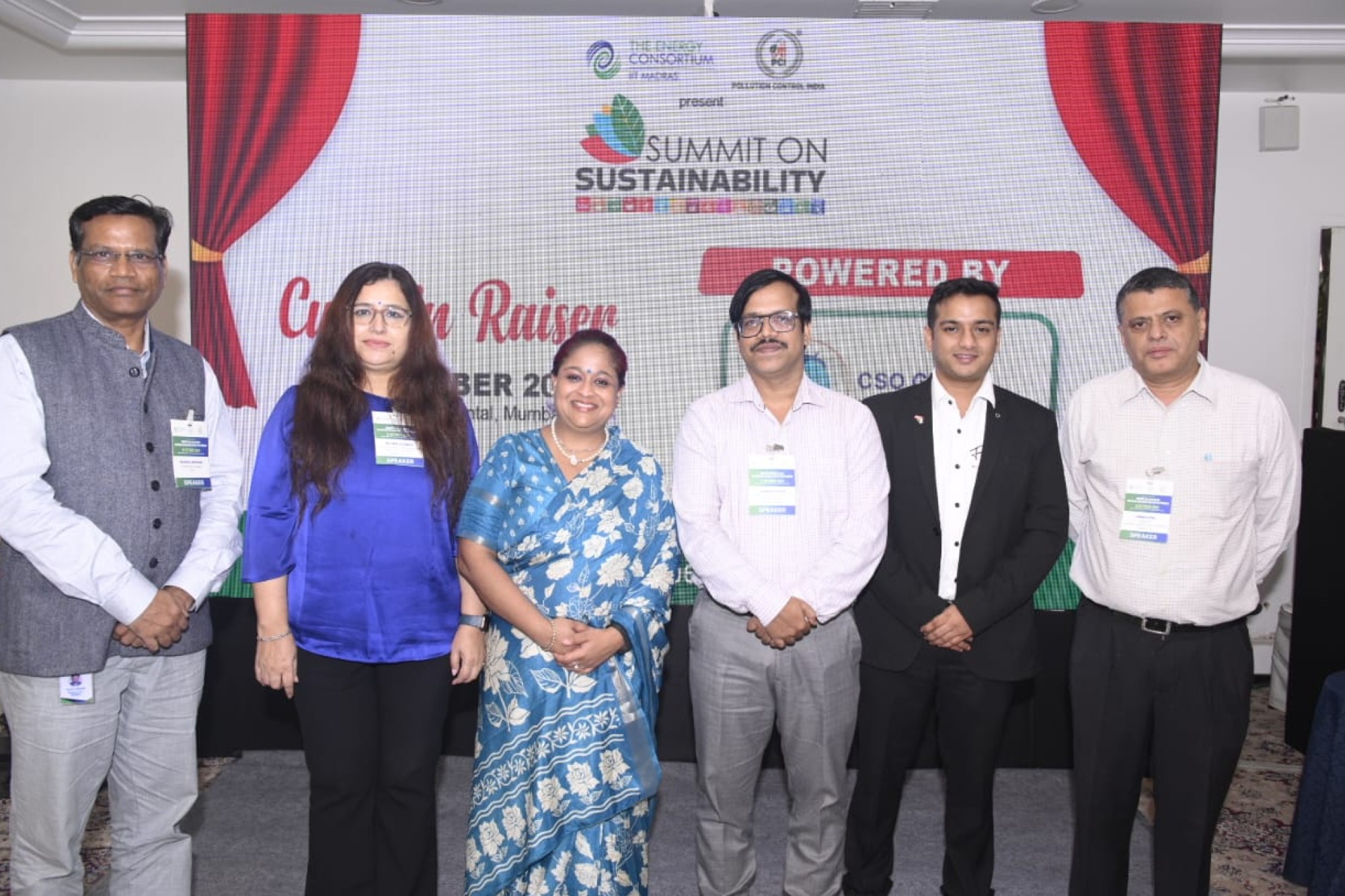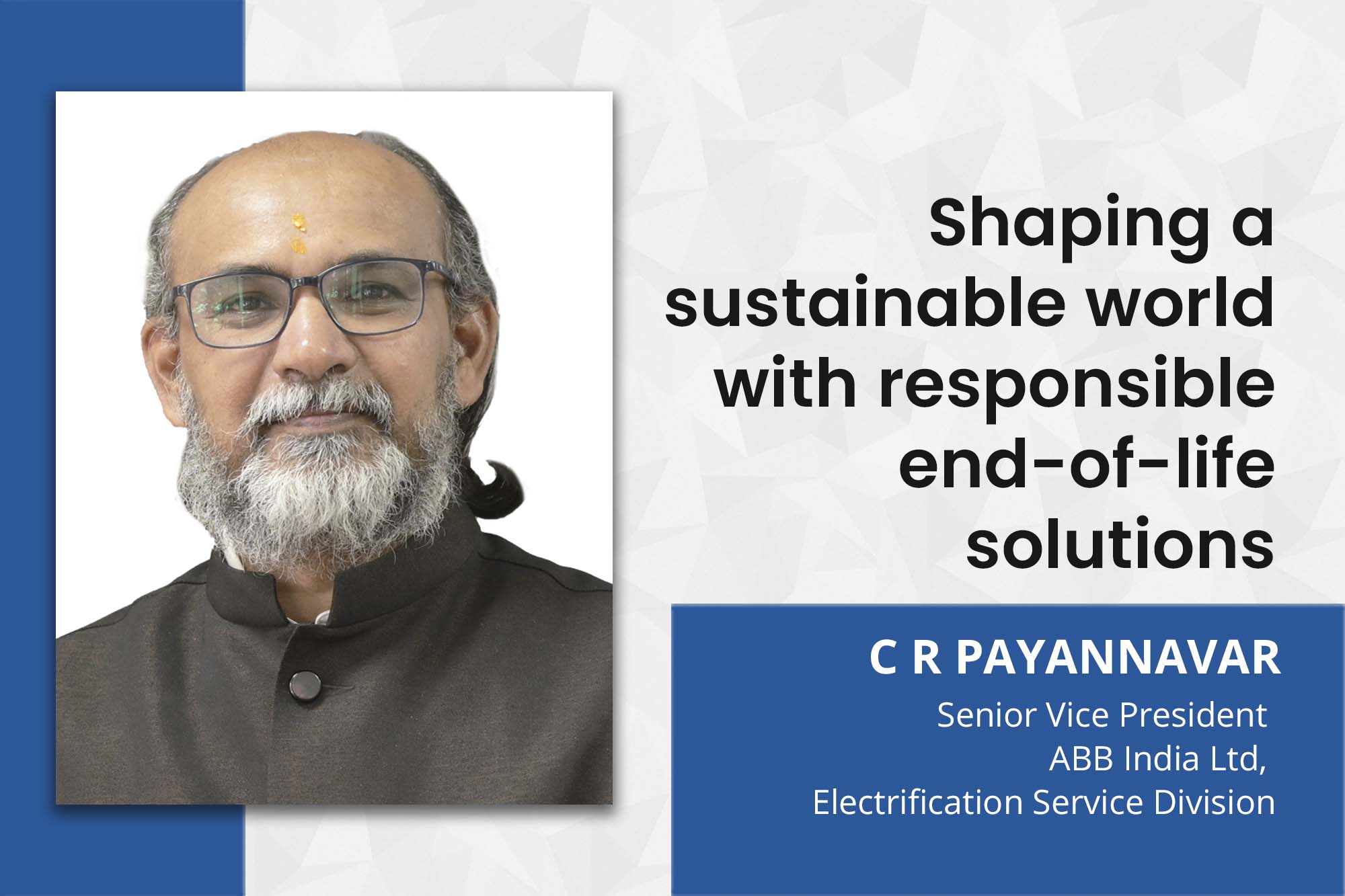High-performance materials and circular technologies drive a sustainable future
By Staff Report January 2, 2025 12:30 pm IST
Sustainable innovations focusing on carbon-efficient and circular technologies that offer sustainable solutions throughout the entire value chain are the need of the hour. Dr Nileshkumar Kukalyekar, Business Director at Envalior, discusses the company’s success in the engineering materials industry and its commitment to sustainability.
How has a customer-focused approach helped Envalior establish and sustain its mantle in the industry?
We emerged in April 2023 from the merger of two leading entities in the engineering material sector. DSM Engineering Materials (DEM) and LANXESS High-Performance Materials (HPM). This merger has positioned Envalior alongside the top global players in engineering materials. We have witnessed a turnover of approximately EUR 4 billion, a workforce of around 4,000 employees, and a presence in Asia, Europe, and the USA. We are committed to innovating new materials, adapting to changing market scenarios, and meeting evolving customer needs with a focus on sustainability.
Materials science and excellence are of utmost importance in the manufacturing industry. Hence, we aim to establish a successful track record of innovating high-performance materials. We set out to serve as a hypermarket for our customers from diverse sectors, offering them a wide range of materials and smoothly balancing overlapping production lines. Our primary focus is meeting customer demands and expanding our material portfolio to meet their evolving needs and adapt to industry innovations.
Several emerging trends in the engineering materials industry will shape the future of manufacturing. How are you positioning yourself to stay ahead of these trends?
We are committed to delivering sustainable innovations, primarily focusing on carbon-efficient and circular technologies that offer sustainable solutions throughout the entire value chain. This comprises everything from the materials used in customer applications to maximising energy efficiency and reducing emissions during manufacturing processes. Our innovations focus on aligning with the industry’s sustainable practices, and we are broadening our range of recycling and bio-based plastics.
The advanced materials market will reach US$2.1 trillion by 2025, growing at a CAGR rate of 4.5% from 2020 to 2025. This growth potential underlines the ever-increasing importance and demand for advanced, high-performance materials across industries. We position ourselves by innovating, experimenting, and expanding our portfolio to meet the diverse needs of customers and the market. We aim to remain at the forefront of the material industry by inventing sustainable alternatives and delivering high-performance solutions.
How does Envalior make use of engineering plastic in modern manufacturing solutions?
With rapid innovations in the manufacturing sector, engineering plastics have made a breakthrough. Our engineering plastics are used in various products like white goods, food packaging, and sporting equipment, and consumers demand top-performance, aesthetic appeal, longevity, and low-energy consumption products. We ensure these goods meet the expectations. We aim to leverage our engineering plastic portfolio to meet the quality and performance standards in producing critical manufacturing components.
We introduced our engineering plastics to drinking water due to rising health concerns associated with leachable substances in plumbing parts. Safe and sustainable materials production of faucet mixing valves and cartridges has led to increased sustainability in residential water system components. The EU and the USA are implementing stringent water safety regulations, prompting more manufacturers to adopt thermoplastic engineering for its sustainable and cost-effective properties.
Envalior is active in manufacturing materials in the EV sector. What are some of the innovations Envalior has made to stay current?
New EV market stakeholders often use lower-quality materials for charging plug production, reducing costs. This puts pressure on other manufacturers to lower their costs. These low-quality materials fail to deliver the aesthetic value that OEMs are expecting. They also do not meet the industry standard of fast-charging plugs, which require high-strength material to withstand high voltage rates. We have introduced Akulon® PA6 and PA66 to counter this due to their exceptional mechanical strength, aesthetics, and outstanding wear performance.
Our material portfolio is cost-effective, impact-resistant, and thermally efficient, ensuring optimal conditions for electric plugs throughout their lifespan. Akulon® has shown extraordinary mechanical and temperature resistance when tested for impact and drive compared to other polyamides. The Akulon® K224-HG6 offers best-in-class safety performance compliant with the International Electrotechnical Commission (IEC) 62196 and UL 2251. It is also supported by a UL Yellow Card. Akulon® has proven expertise in EV charging plug solutions that meet the latest industry trends.
What are some of the leading sectors that Envalior is helping through its high-performing yet sustainable materials?
We have achieved global leadership by collaborating with various industries. As an active player in the automotive sector actively working to make electric vehicles (EVs) safer and sustainable. While also reducing greenhouse gas emissions from various transportation modes like trucks, trains, and aeroplanes. Hence, our high-performing engineering plastics help manufacturers change the dynamics in application design, offering sustainable solutions in the transportation industry.
We provide material solutions in electronics by producing thinner, safer, stronger, and more sustainable parts for smartphones and other devices. Our extensive portfolio includes materials for industrial lifting, pulling gears, and machinery parts, as engineering plastic is set to replace conventional building materials. We also manufacture high-performing materials for medical equipment, catering to the growing demand for sophisticated medical devices.The world is accelerating towards low-carbon technologies and sustainable innovations, which has led to a focus on renewable energy. Our portfolio offers diverse options for established and emerging energy companies.
We also produce materials for industrial equipment, which require numerous mechanical parts. We help customers develop higher quality, safer, eco-friendly, and cost-efficient materials. At Envalior, we put immense focus on meeting the 360° demands of our customers. It also helps companies build a sustainable future and set higher standards in design, comfort, and convenience to use.
What are some of the innovative sustainable approaches Envalior has included in its manufacturing process to play its part in promoting sustainability?
We offer our customers an extensive portfolio of leading eco-friendly products recycled from waste, such as discarded fishing nets. We are revolutionising key industry markets like automotive, transportation, electrical, electronics, and building and consumer goods, transforming our operations.
Akulon® RePurposed, one of our sustainable products made from recycled polyamide, is a glass fibre used in the automotive, electrical, and electronics industries. It is made by collecting, cleaning, and sorting fishing nets, ensuring cleaner oceans and safer marine life.
Other eco-friendly products in our portfolio are Durethan®, Pocan®, Arnite® PET, and Arnite® CRC. Our products are used in several industries. We generate materials that are highly heat, thermal, and chemical resistant and minimally absorb moisture. We also address stringent testing validations that set the standards of the material market across sectors.
Are any specific industry standards or regulations driving your company’s focus on lightweight, low-friction, and environmentally friendly components?
Vehicle light weighting is rapidly gaining traction, transforming the automotive design and manufacturing sector by focusing on materials and part design. Using feather-weight materials with innovative designs and advanced fabrication options has opened the doors to optimised structures and maximised reductions in weight. The lightweight materials also meet the performance and safety standards. The global automotive plastics market, estimated at $30.44 billion in 2023, is expected to grow at a compound annual growth rate of 5.6% from 2024-2030. We utilise a science-based, customer-centric approach and sustainable product portfolio, which are key drivers of its long-standing growth and success.
How do you collaborate with suppliers, research institutions, or industry partners to advance high-performance material innovation?
We collaborate with suppliers, research institutions, and industry partners to develop innovative polymers with reduced Product Carbon Footprints (PCFs), including Akulon® RePurposed, Novamid®, Durethan®, Arnitel®, and other sustainable materials at our R&D centres. We enable our customers worldwide to design technologically advanced products by providing extensive expertise in design and simulation. We have combined PA6 and local reinforcement with Tapex organic sheets and developed an enclosure that offers high resistance to battery fires in a thermal runaway process.
What challenges have you encountered in integrating new materials or manufacturing processes, and how have you addressed them?
Integrating new materials or manufacturing processes in the pipeline presents technical and operational challenges, with Akulon® RePurposed being a technical challenge in high-performing electronic devices like smartphones.
The biggest obstacle was achieving strength, functional integration, and design flexibility for smartphones’ small and thin parts. To overcome this challenge, we partnered with Samsung and modified Akulon® RePurposed to meet the demands of the Samsung Galaxy S22 and Tab S8 series.
Our expertise in materials science enabled us to create thinner parts for products by recycling discarded fishing nets; we developed an eco-friendly material with at least 80% recycled polyamides. This repurposed material was utilised in brackets, S Pen inner covers, and Tab S8 series brackets, ensuring a balance between mechanical properties and sustainability.
Cookie Consent
We use cookies to personalize your experience. By continuing to visit this website you agree to our Terms & Conditions, Privacy Policy and Cookie Policy.



